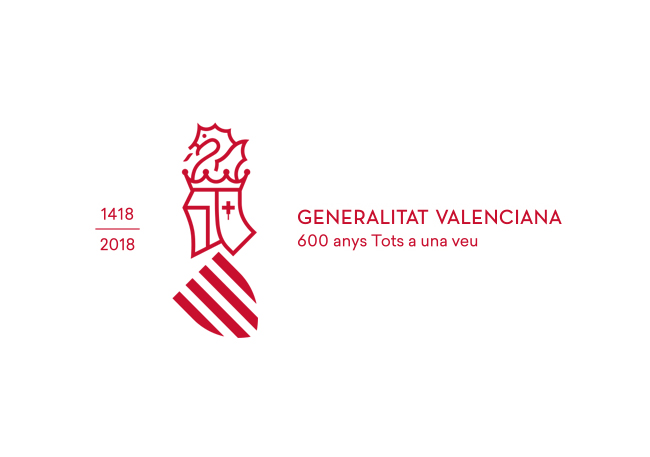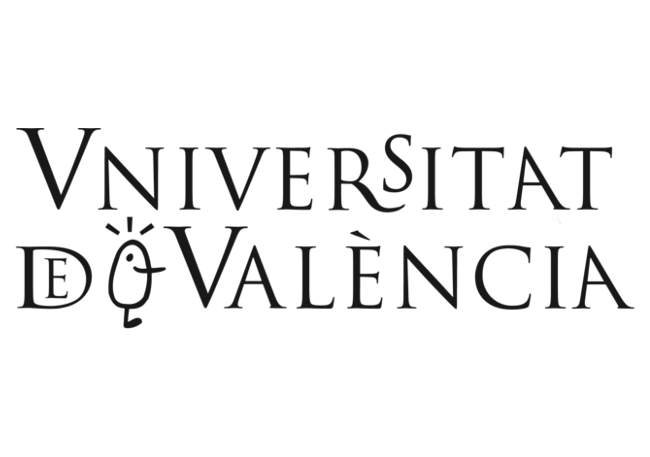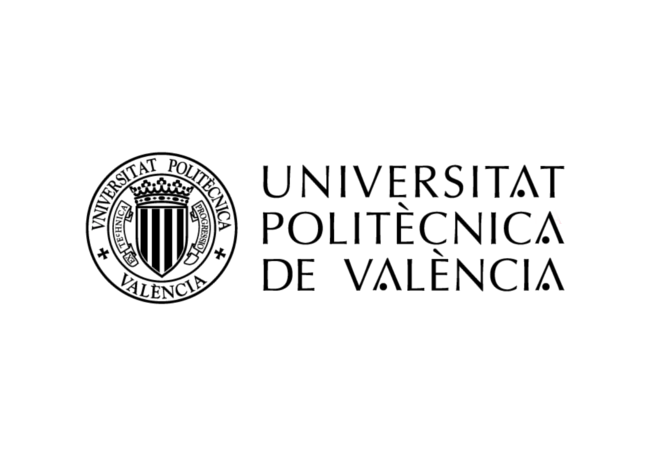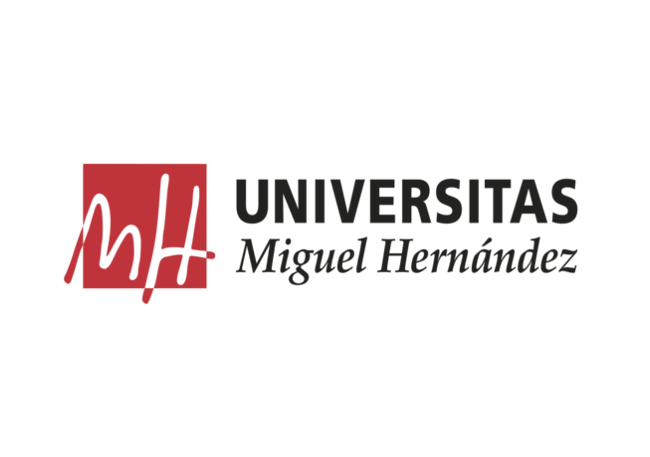About
This year makes the 600th anniversary of the creation of the Generalitat Valenciana, the institution that, initially born with a fiscal and financial purpose, would end up holding the highest political representation of the kingdom. In fact, and like its Catalan and Aragonese counterparts, the Generalitat of the kingdom of Valencia had been created much earlier, in the context of the long war with Castile during the second half of the 14th century, when a major economic effort was necessary in front of the enormous volume of war expenditure. It was not until 1418, though, with Alfons the Magnanimous, when the new institution was fully developed and began to function normally. The Generalitat, initially called Diputació del General, was a permanent commission of the Corts, that is to say, a “deputation”, which represented the whole—the “general” or “generality”—of the inhabitants of the kingdom of Valencia...
This year makes the 600th anniversary of the creation of the Generalitat Valencian, the institution that, initially born with a fiscal and financial purpose, would end up holding the highest political representation of the kingdom. In fact, and like its Catalan and Aragonese counterparts, the Generalitat of the kingdom of Valencia had been created much earlier, in the context of the long war with Castile during the second half of the 14th century, when a major economic effort was necessary in front of the enormous volume of war expenditure. It was not until 1418, though, with Alfons the Magnanimous, when the new institution was fully developed and began to function normally. The Generalitat, initially called Diputació del General, was a permanent commission of the Corts, that is to say, a “deputation”, which represented the whole—the “general” or “generality”—of the inhabitants of the kingdom of Valencia.
The pactism that characterised the states of the Crown of Aragon and the very existence of a representative institution of the kingdom, and autonomous from the royal officials, were not an exclusive feature of the Catalan-Aragonese monarchy, but were also developed in other European countries, where they are known with other names. The issuance of public debt, the first sovereign or state debt in Europe, whose interest was paid with the tax revenues collected by the institution, which thus became permanent and regular, also contributed to the consolidation of the Generalitat. The Generalitat would also assume political functions over time, although it had to share the representation of the kingdom with another institution, the Elets dels Tres Estaments, during the early modern period.
The Generalitat, just as the rest of the institutions of the kingdom of Valencia, was abolished in 1707 by the decree of Nueva Planta promulgated by Felipe V, within the framework of the War of Succession, which replaced the statute by Castilian laws and institutions, with a more centralist and absolutist vision of the state power and the monarchy. During the 19th and 20th centuries the ancient Generalitat became the object, first, of nostalgic evocation on the part of the scholars and writers of the Renaixença and, later on, of vindication by political Valencianism. With the democratic transition and the approval of the Statute of Autonomy of 1982, the name of Generalitat went on to designate the set of Valencian self-government institutions, from the Consell and Les Corts to a series of consultative and normative institutions.
The celebration of the 600th anniversary of its creation will undoubtedly help to better understand the most important of the Valencian institutions, which embodies the political representation of Valencia and the administration of self-government, as well as Valencian history in general. This is, among other academic and historiographical ones, the objective of this international congress, which brings together historians from different countries that have specialised in the big issues that will be addressed: State, finances, taxation, public debt, political thought, culture, art...
The pactism that characterised the states of the Crown of Aragon and the very existence of a representative institution of the kingdom, and autonomous from the royal officials, were not an exclusive feature of the Catalan-Aragonese monarchy, but were also developed in other European countries, where they are known with other names. The issuance of public debt, the first sovereign or state debt in Europe, whose interest was paid with the tax revenues collected by the institution, which thus became permanent and regular, also contributed to the consolidation of the Generalitat. The Generalitat would also assume political functions over time, although it had to share the representation of the kingdom with another institution, the Elets dels Tres Estaments, during the early modern period.
The Generalitat, just as the rest of the institutions of the kingdom of Valencia, was abolished in 1707 by the decree of Nueva Planta promulgated by Felipe V, within the framework of the War of Succession, which replaced the statute by Castilian laws and institutions, with a more centralist and absolutist vision of the state power and the monarchy. During the 19th and 20th centuries the ancient Generalitat became the object, first, of nostalgic evocation on the part of the scholars and writers of the Renaixença and, later on, of vindication by political Valencianism. With the democratic transition and the approval of the Statute of Autonomy of 1982, the name of Generalitat went on to designate the set of Valencian self-government institutions, from the Consell and Les Corts to a series of consultative and normative institutions.
The celebration of the 600th anniversary of its creation will undoubtedly help to better understand the most important of the Valencian institutions, which embodies the political representation of Valencia and the administration of self-government, as well as Valencian history in general. This is, among other academic and historiographical ones, the objective of this international congress, which brings together historians from different countries that have specialised in the big issues that will be addressed: State, finances, taxation, public debt, political thought, culture, art...
Organization
Honor Committee
Molt Honorable Sr. Ximo Puig President de la Generalitat ValencianaMolt Excel·lent Sr. Enric Morera President de Les Corts Valencianes
Honorable Sr. Vicent Marzà Conseller Educació, Investigació, Cultura i Esport...
Honor Committee
Molt Honorable Sr. Ximo Puig President de la Generalitat ValencianaMolt Excel·lent Sr. Enric Morera President de Les Corts Valencianes
Honorable Sr. Vicent Marzà Conseller Educació, Investigació, Cultura i Esport
Prof. Dra. Mª Vicenta Mestre Rectora Magnífica de la Universitat de València
Prof. Dr. Francisco J. Mora Rector Magnífic de la Universitat Politècnica de València
Prof. Dr. Manuel Palomar Rector Magnífic de la Universitat d’Alacant
Prof. Dra. Eva Alcón Rectora Magnífica de la Universitat Jaume I
Prof. Dr. Jesús Tadeo Pastor Rector Magnífic de la Universitat Miguel Hernández
Molt Il·lustre Sr. Santiago Grisolia President del Consell Valencia Cultura
Honorable Sr. Ramon Ferrer President Acadèmia Valenciana de la Llengua
Scientific Committee
Guido d’Agostino (Università degli Studi di Napoli Federico II), Ernest Belenguer (Universitat de Barcelona), Agustín Bermúdez (Universitat d’Alacant), Wim Blockmans (Universiteit Leiden), Germà Colon (Universität Basel-Universitat Jaume I de Castelló), Pietro Corrao (Università degli Studi di Palermo), Remedios Ferrero (Universitat de València), Felipe Garín (Universitat Politècnica de València), Jean-Philippe Genet (Université Paris 1 Panthéon-Sorbonne)...Scientific Committee
Guido d’Agostino (Università degli Studi di Napoli Federico II), Ernest Belenguer (Universitat de Barcelona), Agustín Bermúdez (Universitat d’Alacant), Wim Blockmans (Universiteit Leiden), Germà Colon (Universität Basel-Universitat Jaume I de Castelló), Pietro Corrao (Università degli Studi di Palermo), Remedios Ferrero (Universitat de València), Felipe Garín (Universitat Politècnica de València), Jean-Philippe Genet (Université Paris 1 Panthéon-Sorbonne), Enrique Giménez (Universitat d’Alacant), Lluís Gimeno Betí (Universitat Jaume I de Castelló), Michel Hébert (Université du Québec à Montréal), Paulino Iradiel (Universitat de València), Antonello Mattone (Università degli Studi di Sassari), Antonio Mestre (Universitat de València), Rosa Monlleó (Universitat Jaume I), Tomàs de Montagut (Universitat Pompeu Fabra, de Barcelona), M. Rosa Muñoz (Universitat de València), Giovanni Muto (Università degli Studi di Napoli Federico II), Mariano Peset (Universitat de València), Emilia Salvador (Universitat de València), Eva Serra (Universitat de Barcelona) i John Watts (University of Oxford).Organizing Committee
Conference president: Antoni Furió (Universitat de València).Conference secretaries: Juan Vicente Garcia Marsilla (Universitat de València), Lluís Guia (Universitat de València).
Ester Alba (Universitat de València), Armando Alberola (Universitat d’Alacant), David Bernabé (Universitat d’Alacant), José Vicente Cabezuelo (Universitat d’Alacant), Teresa Canet (Universitat de València)...
Organizing Committee
Conference president: Antoni Furió (Universitat de València).Conference secretaries: Juan Vicente Garcia Marsilla (Universitat de València), Lluís Guia (Universitat de València).
Ester Alba (Universitat de València), Armando Alberola (Universitat d’Alacant), David Bernabé (Universitat d’Alacant), José Vicente Cabezuelo (Universitat d’Alacant), Teresa Canet (Universitat de València), Carmen Corona (Universitat Jaume I de Castelló), Josepa Cortès Escrivà (Universitat de València), Ricardo Franch (Universitat de València), Vicent Garcia Edo (Universitat Jaume I de Castelló), Albert Girona (Universitat de València), Magdalena Martínez Almira (Universitat d’Alacant), Josep Montesinos (Universitat de València), Francisco Javier Palao (Universitat de València), José Antonio Pérez Juan (Universitat Miguel Hernández d’Elx), Vicent Pons (Universitat de València i Arxiu de la Catedral de València), Carles Rabassa (Universitat Jaume I de Castelló), Pilar Roig Picazo (Universitat Politècnica de València), Pedro Ruiz Torres (Universitat de València), Josep Miguel Santacreu (Universitat d’Alacant) i Francesc Torres Faus (Arxiu del Regne de València).
Work Team: Luis Almenar, Antonio Belenguer, Guillem Chismol, Javier Fajardo, Miquel Faus, Laura Peris, Lledó Ruiz Domingo, Blai Server.





